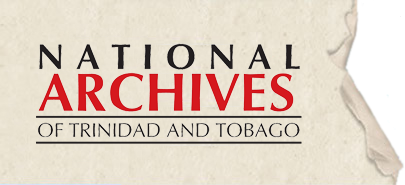The Road to Nationhood
The road to nationhood in Trinidad and Tobago was a distinctive process marked by labour and political movements, electoral and legislative reforms, and global influences.
The journey began in 1898 when Tobago was united with Trinidad as one British Crown Colony. Life in the colony however was not always harmonious as poor economic, social and political conditions bred feelings of anti-colonialism. Such sentiments were fuelled after World War I on the return of local soldiers who had served in the British West Indian Regiment. One returning soldier, Captain Arthur Andrew Cipriani, was influential in sowing the seeds of the labour movement as he became the leader of the Trinidad Workingmen’s Association (T.W.A.), the leading workers’ organisation at that time, and in 1919, led the Watermen’s Strike, the nation’s first major industrial strike.
In 1924 major changes in the governance of the colony came as the Legislative Council moved from having nominated members to elected members. By 1925, Trinidad and Tobago had its first General Election.
The decade 1930 to 1940 was a period of economic, political and social upheaval throughout the Caribbean which spurred the labour riots of 1937 in Trinidad. This period saw the rise of various trade unions and labour leaders, including Uriah Butler. In 1941, changes were again made in the Legislative Council resulting in an elected majority, and later in 1945, Universal Adult Suffrage was granted. In 1946 the first General Elections under Universal Adult Suffrage was held. Concurrent with these developments, was the decolonization movement that swept across the British Empire from 1945 to 1960.
Anti-colonial sentiments continued to take precedence especially on the political platform, demonstrated in the 1950 election when the British Empire Citizens and Workers Home Rule Party led by Uriah Butler convincingly won the most seats in the General Election. This became a trend in the politics of the island with the most seats being won by political parties that were anti-colonial in its views. In the 1956 General Election, the Peoples’ National Movement (P.N.M.) led by Dr. Eric Williams convincingly won and Dr. Williams was made Chief Minister of the colony. Attempts to grant Independence to a unified British West Indies under the banner of the West Indian Federation, failed in 1962. The British Government eventually granted Independence to Trinidad and Tobago on 31 August 1962. Dr. Eric Williams became the first Prime Minister and Sir Solomon Hochoy the first Governor-General. A national flag and other national emblems were selected to forge a new identity. A system of national awards was also introduced with the first awards being awarded in 1969.
The quest for autonomy from the British Government would continue until 1976 when Trinidad and Tobago became a Republic under the Republican Constitution. Sir Ellis Clarke became the first President. In 1980, Tobago was granted limited autonomy with the reestablishment of the Tobago House of Assembly.
The National Archives of Trinidad and Tobago invites you to journey to the past as we chart the milestones on the nation’s road to nationhood, through documents and photographs from our collection.

Sources:
Beckles, Hilary and Verene Shepherd. eds. Caribbean Freedom: Economy and Society from Emancipation to the Present. Kingston: Ian Randle Publishers. 1996. Print.
Brereton, Bridget. A History of Modern Trinidad 1783 – 1962. Champs Fleurs: Terra Verde Resource Center. 2009. Print.
Higman B.W. ed. Trade, Government and Society in Caribbean History 1700 – 1920. London: Heinemann Educational Books. 1982. Print.
Howe, Glenford. Race, War and Nationalism: A Social History of West Indians in the First World War. Kingston: Ian Randle Publishers. 2002. Print.
Williams, Eric. History of the People of Trinidad and Tobago. London: Andre Deutsch Limited. 1962. Print.
"Caribbean Naval Bases - Atlantic Naval Conflict." WWII Forums. N.p., n.d. Web. 08 Sept. 2014. <http://www.ww2f.com/topic/16983-caribbean-naval-bases/>.




